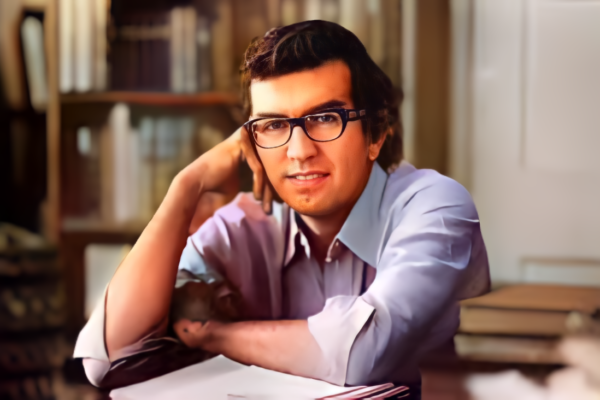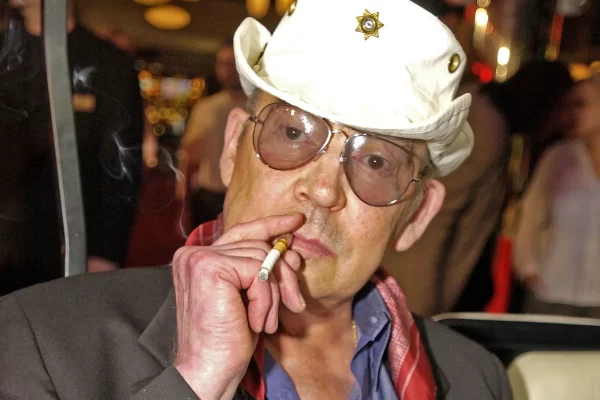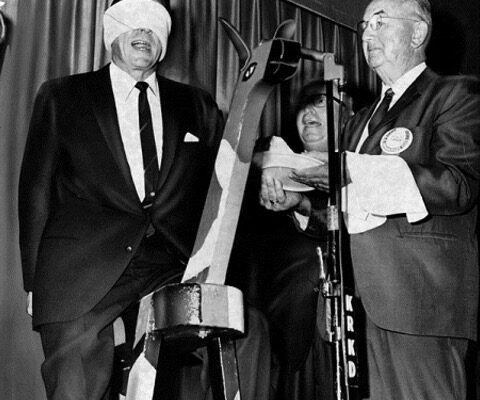So I had come to the Rio Grande, symbolic of the border of my existence and the two sides of who I was. And right now I wanted to be neither.
I AWOKE TO FIND MYSELF WITH a young woman I’d met the night before named Lourdes sitting in my Mustang. She offered me a Coca Cola to sip. It was the next day. The midday sun was ablaze, and I was wet with sweat. I had only partial vision in my left eye. The eyelid was swollen, and I felt a Band-Aid on the eyebrow.
“You hit your head when you fell,” she said. “It’s just a bruise and a small cut, but you’ll have a shiner.”
“How did we get here?”
“Your keys. They were for a Mustang, and it was parked out front.”
“Why didn’t you just steal it?” I asked rudely.
“Fuck you,” she said. “I’m a whore, so you think I’m a thief, too?”

“I didn’t call you a whore.” She is crying, and I could see that I had hurt her. “Look, I’m sorry,” I said. “I’m pretty much wasted. I don’t know what I’m saying or what I’m doing. I didn’t mean to treat you badly. Thank you for helping me. I know I’ve got a great way of showing my appreciation.”
Then big tears started welling in my eyes, and I broke down crying.
She tried to comfort me and held me for the longest time. Lourdes didn’t seem like someone who would be working where I met her.
Maybe if my head hadn’t been hurting so much I might have asked why. Instead she was the inquisitive one.
“So, who’s Patricia?” she asked.
I was tongue-tied that she would know the name.
“You kept saying her name when you were out,” she said. “Is she why you’re down here?”
I didn’t answer, and the moment grew awkward.
“Look, guy, I hope you find what you’re looking for,” she said. She got out of the car and walked away, disappearing into a side street. She had left the forty dollars I’d given her the previous might on the passenger’s seat. I wanted to go after her and insist she take it, but I didn’t. There would be a scene, I knew, and she didn’t need me complicating her life.
I tried sitting up straight, but my head wouldn’t stop throbbing.
Part of me wished my head would just explode and leave me in peace.
It didn’t, and I found myself driving around Laredo without knowing where I was. I thought about crossing the border into Nuevo Laredo and continuing into Mexico. For being the Mexican in so many other people’s eyes, I had never so much as set foot in that country. For me, Mexico was only a place on the map, a place my grandfather used to tell me about when I was little.
He used to tell me there were two Mexicos. There was the Mexico that he dreamed about, isolated as he was in America from his homeland. Then there was the Mexico about which he had nightmares. Mexico was like the gifted child who had foolishly squandered all his talent, he said.
“Mexico,” my grandfather used to say, “will always break your heart.”
But then, my grandfather, like most Mexicans, was a romantic.
Besides being a miner, he had been a revolutionary, and he had fought with Pancho Villa. One of his prized possessions was a faded sepia photograph of himself with Villa. At least, he claimed it was himself when he was young standing with Villa, each with bandoleers crossing their chests. When my grandfather died, his sons and daughters wound up in a royal row over that photograph and a Bible on which he said Villa had sworn to fight until the revolution had been won.
I remember once asking my grandfather why, if he dreamed about his homeland so much, he had never once bothered to return to Mexico or even set foot back there.
“Because” he told me, “the revolution isn’t over.”
It wasn’t my revolution, however, and it wasn’t my country. My country was the most magnificent land in the world, God’s chosen kingdom on earth in which we were taught from our childhood to defend the defenseless, protect women and children, welcome the poor, help the sick, champion right, condemn wrong, love your neighbor as yourself, and earn your rewards through merit, talent, and good works.
But right now, all that seemed illusory, images sold to romantics.
Near the main border crossing, I veered on to a side road that ran west along the Rio Grande. This hardly seemed the place where one world ended, and another began. I expected something more dramatic, an ocean or the Berlin Wall instead of a riverbank of sagebrush, broken bottles and shattered dreams. I could see pieces of the river and walked toward it. I wanted to scream. I wanted to be a brooder no longer. Brooders never win. Couldn’t I be a man of action for a change?
At last, I came to a clearing with an unobstructed view of the choppy waters rushing eastward.
“April is the cruelest month!” I yelled at the top of my lungs as I plowed through the soft ground. “Breeding lilacs out of the dead land, mixing memory and desire.”
Oh, God, couldn’t I at least be original in ending all this. And I didn’t mean it anyway. April wasn’t the cruelest month. Patricia had been born in April.
I trudged forward.
“I have not loved the world, nor the world me,” I shouted as I came to the river’s edge, ripping off Byron. “So let us part fair foes.”
I was done. I stood, uneasily, on the southernmost edge of America, my America, looking southward to the land where I was supposed to belong, the land of my kind. A teenage couple made their way past, meandering through stretches of hardened mud where the river hadrun dry. I couldn’t tell if they were coming or going. They stared at me suspiciously even as I offered the bottle of Cuervo that they didn’t want.
So I had come to the Rio Grande, symbolic of the border of my existence and the two sides of who I was. And right now I wanted to be neither.
This is where you came to when you were me, after the sun, the Colombian Gold, the Cuervo Tequila, and thoughts of the golden blondes kept you up until five in the morning, with thoughts surfing on the suicidal and needed something to reduce agitation. Then you came here to drown your sorrows.
I splashed down into the Rio Grande, looking for the deepest part and finding only large calf-deep puddles. It would have to do. I sat down and, as I sank, I took one final look at both sides. I belonged on neither, so I belonged nowhere.
One last thought of Patricia flickered through my mind.
Then I took another hard swig of the Cuervo, dropped my head backward into the river and surrendered to the tears and the water that quickly obliterated my face.
Tony Castro, the former award winning Los Angeles columnist and author of CHICANO POWER (E.P. Dutton, 1974), is a writer-at-large with LAMonthly.org. CHICANO POWER will be published in a special 50th anniversary edition in 2024. He can be contacted at tony@tonycastro.com






